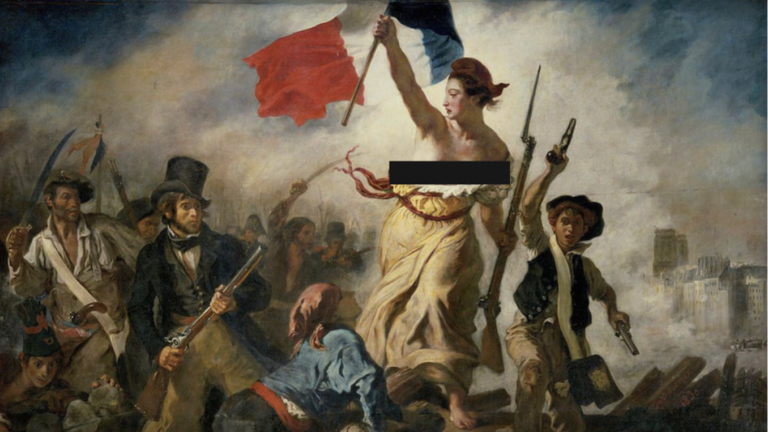
PARIS — The French senate adopted on Tuesday two provisions formulated in a sensationalist anti-porn parliamentary report, seeking to establish mandatory warnings if any adult content simulates any illegal act, and order sites to remove adult content upon a performer’s request.
Socialist senator Laurence Rossignol readily admitted that this amendment “will complicate the life of publishers of porn sites, and that is the goal.”
The news regulations approved by the French senate will now be part of a new bill to “secure” the internet proposed by the conservative Macron government.
The new amendments to the Macron government bill stem from a September 2022 French Senate committee report comparing the adult industry with “hell” and recommending state regulation and censorship.
The report, titled “Porno, l’Enfer du Décor,” combines a pun on the French expression “l’envers du décor,” meaning “behind the scenes,” with the word for “hell” — “enfer,” as in “infernal.”
The report resulted from hearings about the adult industry, conducted by Senators Annick Billon, chair of the committee for women’s rights (UDI, Vendée), Alexandra Borchio Fontimp (LR, Alpes-Maritimes), Laurence Cohen (Communiste, Val-de-Marne) and Rossignol (Socialiste, Oise).
As the newspaper Libération reported at the time, the new document was prompted and has been influenced by sensationalist media coverage of “sordid affairs” involving a few adult producers and shoots — some going back to 2009 — that were publicized in 2021 and 2022.
The French parliament has decided to prioritize its attempt to establish state supervision of the internet, spearheaded by the anti-porn crusade, during a season in which its efficiency is being challenged by violent incidents of police brutality and civil unrest
Some Disagreements Among the Anti-Porn Politicians
One of the amendments approved on Tuesday was promoted by report leader Billon and would “require publishers of pornographic websites to display a message alerting consumers to the illegal nature of any content involving the simulation of rape, sexual assault or an offense committed against a minor, before broadcasting any such content,” French wire service AFP reported.
Failure to comply with this obligation — which was also backed by Communist Senator Laurence Cohen — would be punished by a fine of 75,000 euros and one year of imprisonment.
“We share the intention of the amendment”, affirmed Macron’s Minister for Digital Transition Jean-Noël Barrot, and warned the there’s “still a bit of work to be done”.
Barrot expressed opposition to Billon’s second amendment, which was passed by the Senate, aiming to allow people who have appeared in a pornographic film to obtain “without delay” a withdrawal of this content from the internet, regardless of the the terms contractually agreed upon.
Barrot — who has vowed to bring about “the end of access to pornographic sites for our children” in 2023 — expressed his concern that “in practice, it will make the content illegal.”
Macron’s Government Ramps Up Anti-Porn Campaign
As XBIZ reported, in May the French government has confirmed that the new bill to “secure and regulate the digital space,” which aims to to bypass the courts and force platforms to implement age verification, will apply not only to specifically adult sites but also to any site that allows explicit content, including Twitter.
Barrot celebrated at the time the government’s intention to empower online media regulator ARCOM to order, without needing to go through the courts, the blocking and delisting of adult sites that do not prevent minors from accessing their content.
The five most popular adult sites in France — Pornhub, Tukif, xHamster, XVideos and Xnxx — have been explicitly targeted by the government.
Those sites presented their objections to the controversial, vaguely worded 2020 law allowing France’s online content regulator, ARCOM, to seek a blocking order to target sites “that fail to prevent minors from accessing online pornography.”
The sites’ lawyers presented requests to nullify the proceedings and order a stay of the proposed block. The tribunal then gave itself until Friday.
France’s age verification mandate was surreptitiously added to a hastily approved domestic violence law during an atypical and sparsely attended COVID-era session of the French Parliament in July 2020.